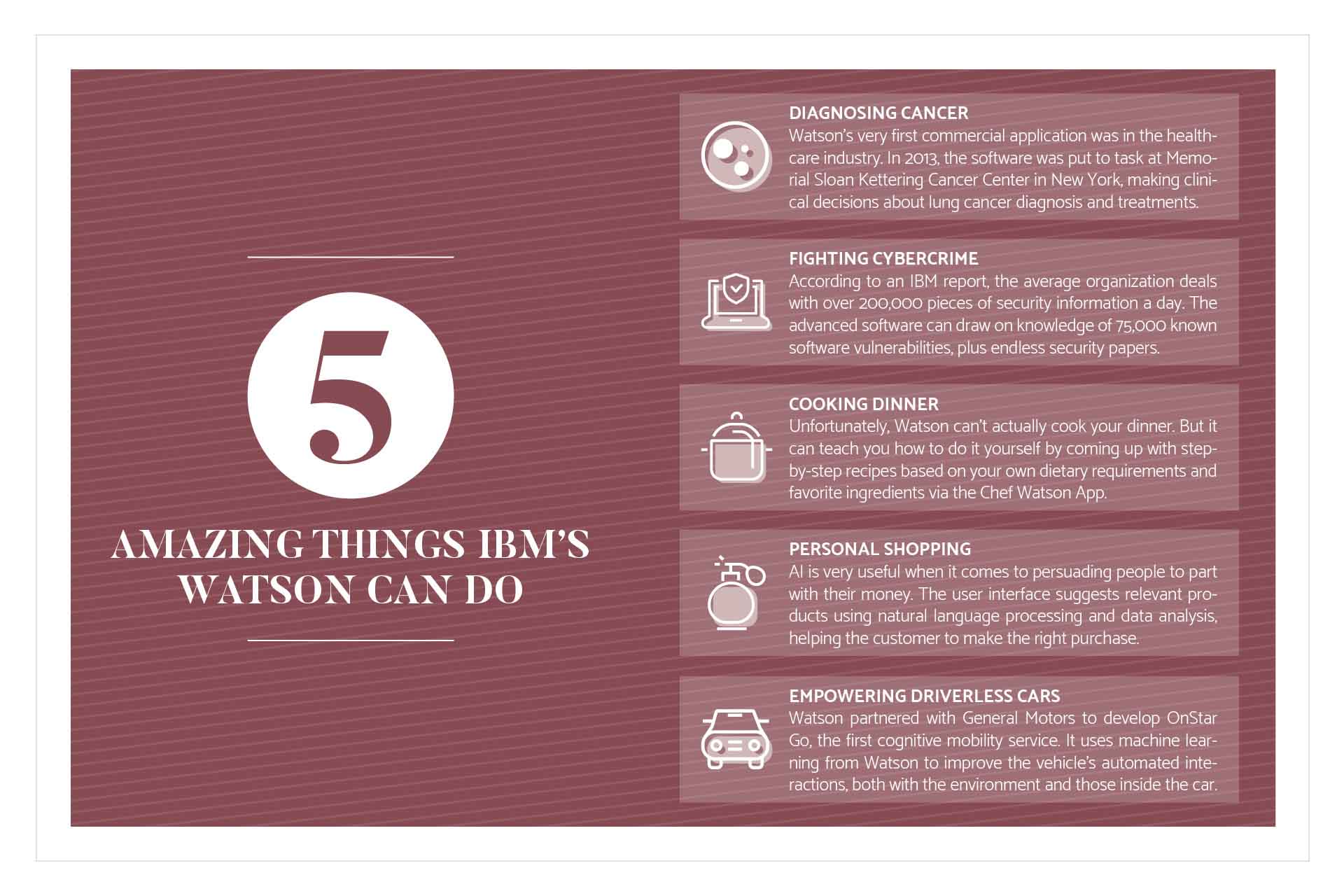For Beth Smith, General Manager of IBM Watson, AI is having a fundamental impact on business.
IBMs landmark Watson computer system was initially developed to answer questions on the popular TV quiz show Jeopardy!, beating a pair of legendary champions of the show for a first-place prize of $1 million.
Yet today, the artificial intelligence employed by the computer is being put to far more important uses, such as utilization management decisions in lung cancer treatment at the Memorial Sloan Kettering Cancer Center in New York City, a sure sign of the enormous potential of AI to fundamentally transform our lives.
For Beth Smith, General Manager of IBM Watson, IBM’s suite of enterprise-ready AI services, applications, and tooling, taking on her current role in the company represented a once-in-a-lifetime opportunity to be at the cutting edge of AI technology and its role in transforming how businesses operate.
“You look at what Watson did first with the introduction through Jeopardy! and then you think about how we can help solve a real problem that clients have,” Smith says of her decision to take on the position of General Manager.
“I just said, this is the opportunity to be part of shaping the next era of technology, how to really bring it forward into what businesses do every day. I knew that AI was going to be disruptive, but the way it would really fulfil its promise would be in how businesses are run.”
“I guess, in many ways, you could say I saw my calling and how I could come and help the Watson team by helping us industrialize AI and really operationalize it across companies.”
The business of transformation
As GM of IBM Watson Technology, Beth is responsible for the Watson technology platform, its global ecosystem of partners and developers, and emerging tech solutions. Watson is IBM’s flagship cognitive system, yet Smith also contributes to technical and business strategy across IBM as a member of the IBM Technology Team and the IBM Growth & Transformation Team, both of which shape key strategic initiatives across the corporation.
Smith’s broad background in IBM software took root in 1987 with her first role as a programmer in Cary, NC.
Over the years, she has held several executive roles in IBM, including prior positions as the GM of IBM’s Analytics Platform; GM of IBM’s Information Management; VP of WebSphere and VP of WebSphere Business Development where she led mergers and acquisitions.
“Since its inception, IBM has been a company that was really founded and continues to focus on how we help businesses,” she outlined. “How do we bring various forms of technology from 100 years ago to today in to solve business problems? You think about that in the era of AI and Watson, and IBM has definitely been a pioneer in what it means to apply AI to business. It means being able to help automate and further transform industries. It means that we have to be focused on data responsibility, the ethics of AI, and things that can allow it to be responsible.”
According to Smith, the key to such thinking rests on three aspects that she views as making IBM Watson uniquely positioned in its market-space: the technical implementations it uses in order to enable the Watson computer to learn more with less data, the protection of data and insight based on a fundamental aspect of security and privacy, and thirdly, how it applies to work flows and business processes.
“That can come from a variety of things,” Smith explained. “It can be how you see conversational bots interacting with customers or customer service reps, or oil and gas engineers.
And we’ve witnessed a number of clients in different industries around the world see that benefit.
They can reduce the time that their employees are spending searching for that expert knowledge by as much as 75%, and these are clients for whom time really matters.”
Imagining the future
Amid such a rapidly moving technology landscape, it is often hard to imagine how the future will look, but Smith is con dent that the impact of AI on business, though it may prove to be disruptive at first, will be highly significant.
“It will disrupt some, and it will augment many, many others,” she said. “But first, enterprises need to be able to embed AI in their work flows, and to do that they need to believe that AI is accountable, that it’s traceable, that it’s fair and has dealt with biases. at it is explainable such that clients can understand the recommendations and predictions that may come out of it.
“In the longer term, you consider that the automation revolution will come to AI itself. Where will AI be applied to AI, and how will techniques advance so that it doesn’t require highly skilled AI scientists for people to get the benefit of it? There are many advances underway in this area and more science to come. It’s a combination of challenge and opportunity.”
Collaborating on innovation
Smith is keenly aware that without key partnerships, IBM Watson would not be able to achieve these many advances, and she highlights a variety of partners and providers, large and small, through which the company has acquired both operational benefits and helped partners expand their business.
“We have a couple of different approaches to collaboration,” she explained. “One is through the work that we do to both leverage and contribute to and support open source, and the open source community. e other angle is through partnerships directly with various providers, such as Apple, Salesforce, Box, Inc. and Workday.
They’re a variety of different companies that have their own ecosystem and alongside what they’re doing, Watson can augment that to then help us expand our business and also help them grow theirs.
“In the coming months, you’ll see more announcements between those various partners and ourselves which bring to life this overall capability of being able to bring the two things together,” Smith highlighted. “ ere are also a number of different partnerships we have with organizations like Unity where it’s about the developer community. It becomes a point of how we gain value from that to ultimately be able to deliver a more encompassing capability to the market.”













